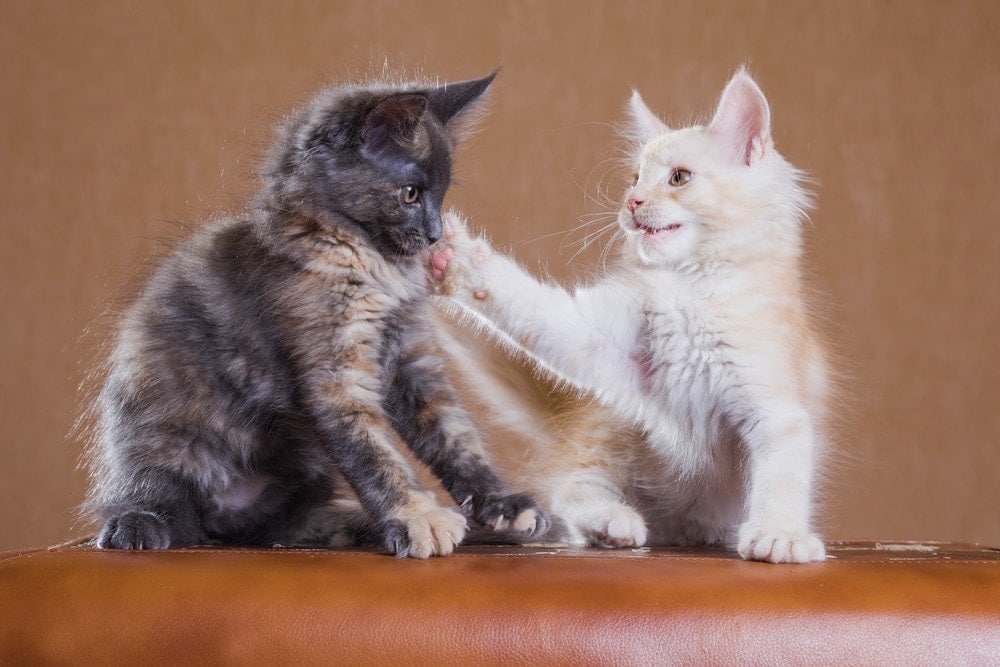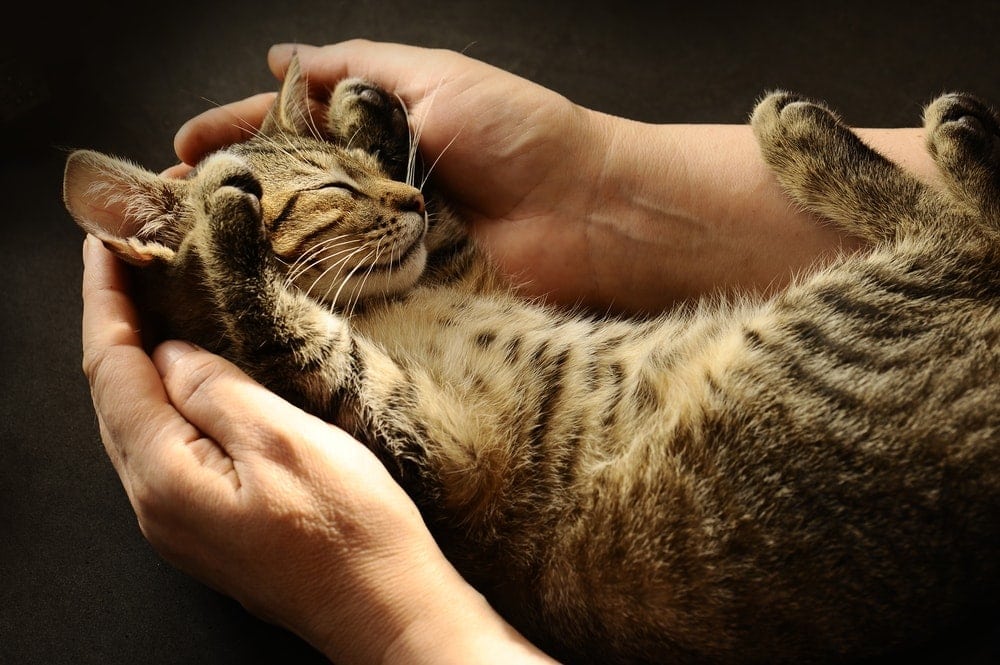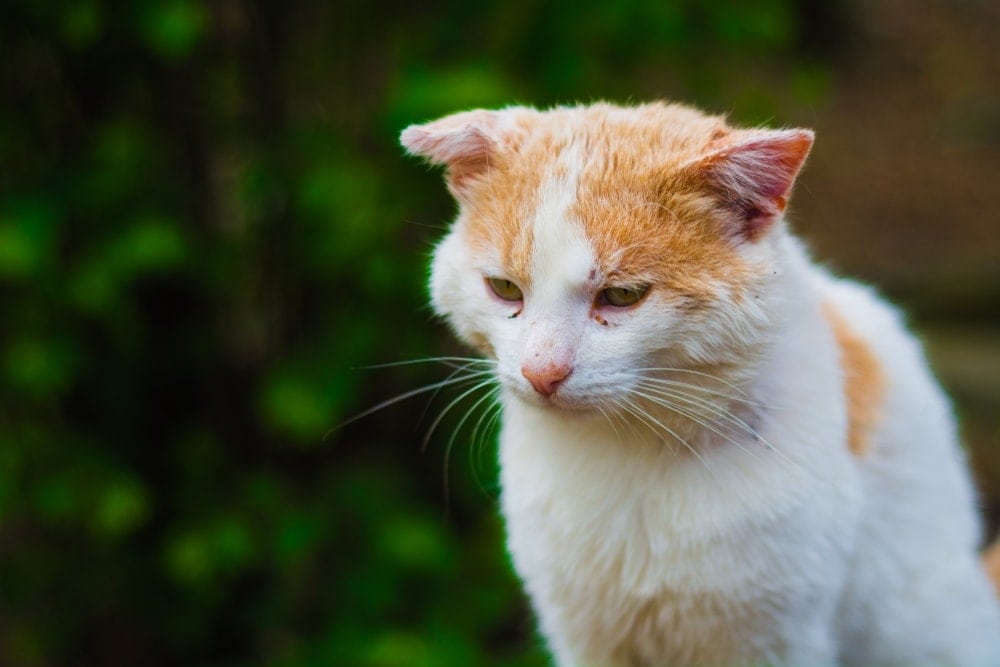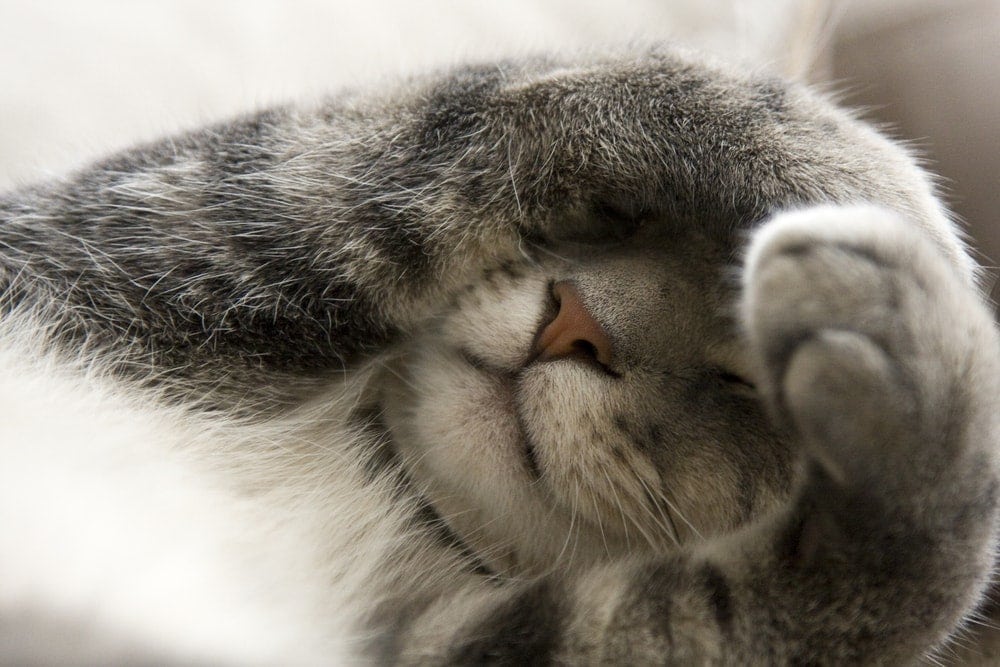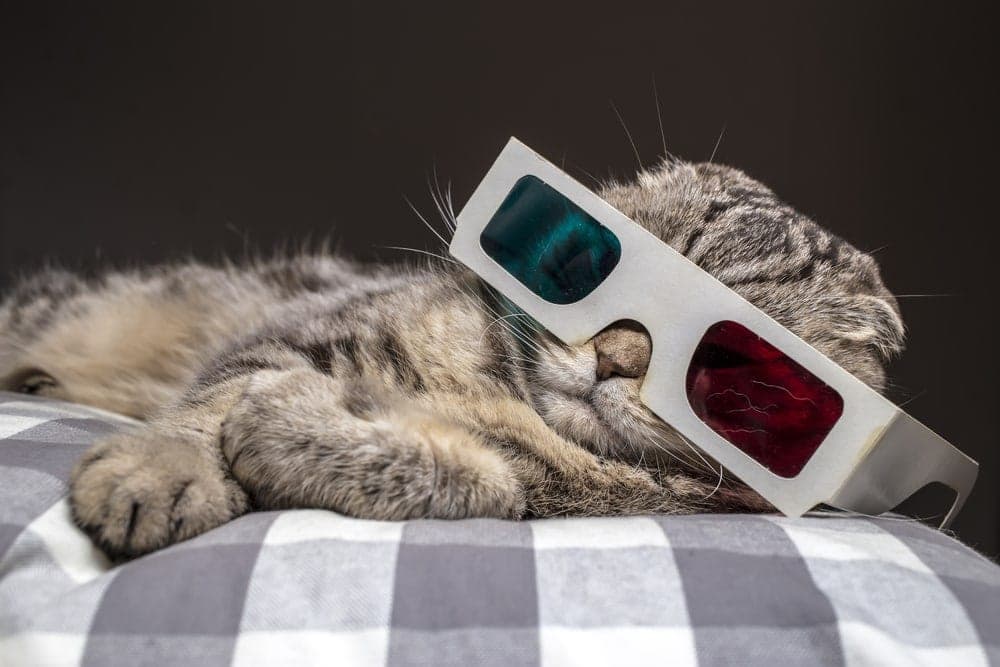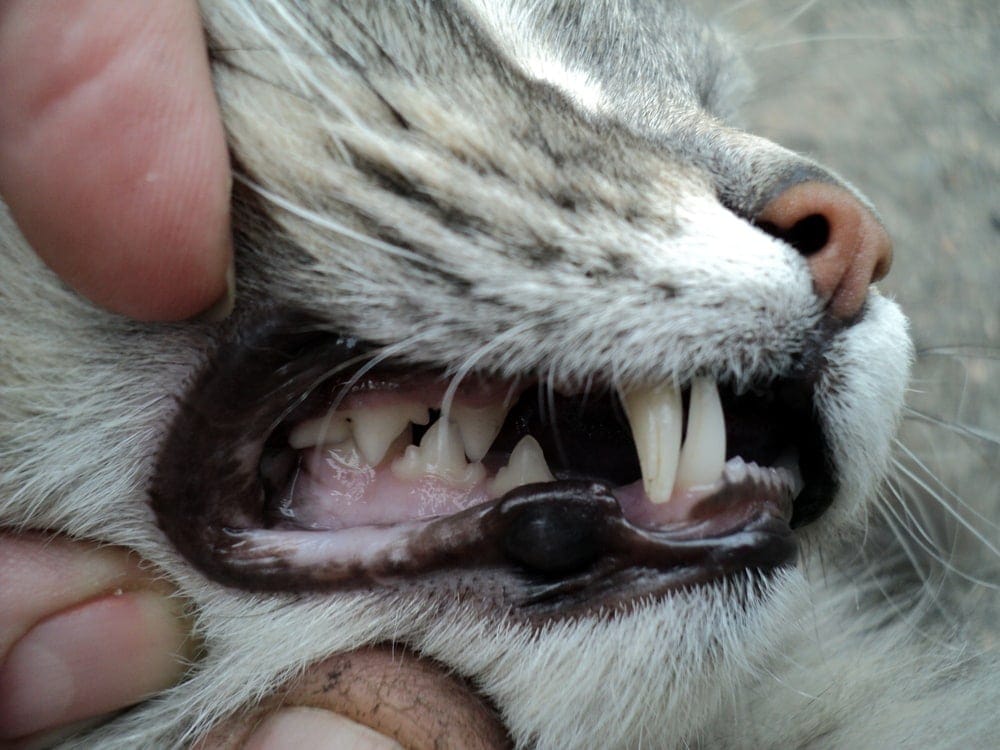If your kitty happens to bite you, it is important that you know how to respond.
A little scratch or bite from your cat might seem like no big deal, but it can quickly become one. In this article, you will learn about how to properly treat feline bites.
Why Cats Bite
Your cat may bite you for a number of reasons. It is possible that you were handling them a bit too roughly, or they were just in a bad mood. A stressed or aggravated cat will sometimes lash out with its claws or teeth (or both).
Biting is pretty common for kittens, though they usually do not break the skin. Kittens that bite beyond a certain age were not properly socialized earlier on. This can be a problem for many reasons.
Sometimes a cat will bite as a means of asserting its dominance. This is basically their way of saying “hey, I’m the one in charge”. While this is a natural instinct for these animals, it is not one that you should encourage or accept.
Dangers of a Cat’s Bite
The main danger that is associated with getting bitten by a cat is that the wound will get infected. There are all sorts of potentially dangerous bacteria that cats can pass to humans through bites. Streptococcus is just one such bacteria, and it can be lethal if left untreated.
There is also the risk of getting “cat scratch fever” from a cat bite. This condition is also known as cat scratch disease, and humans can get it from their feline pets. It is a certain type of bacteria called Bartonella henselae.

How to Treat Bites from Your Cat
There are some very specific steps that you’ll want to take after getting bitten by your cat. By doing this you will exponentially reduce the chances of infection.
1. Press on the Wound
If your cat’s bite has broken the skin, you’ll want to press or squeeze on it to get a little bit of blood out. This will help minimize the number of bacteria that gets into your bloodstream. You don’t have to squeeze out a ton of blood, just a little.
2. Clean the Wound
The next thing you’ll want to do is to clean the wound. Make sure that you gently scrub the affected area with warm water and soap. You don’t want to rub too hard, as it can irritate the wound and make things even worse.
3. Apply an Anti-Bacterial Ointment
Once you have thoroughly cleaned the bite wound with soap and water, you’ll want to apply an over-the-counter antibacterial ointment. This will also reduce the chances of a bacterial infection. You only need to apply enough to cover the surface of the wound.
4. Cover the Wound with a Bandage
The final step in this process is to cover up the wound with a clean bandage. Make sure that the bandage covers the entire wound. You’ll want to replace it one to two times each day until the wound has healed.
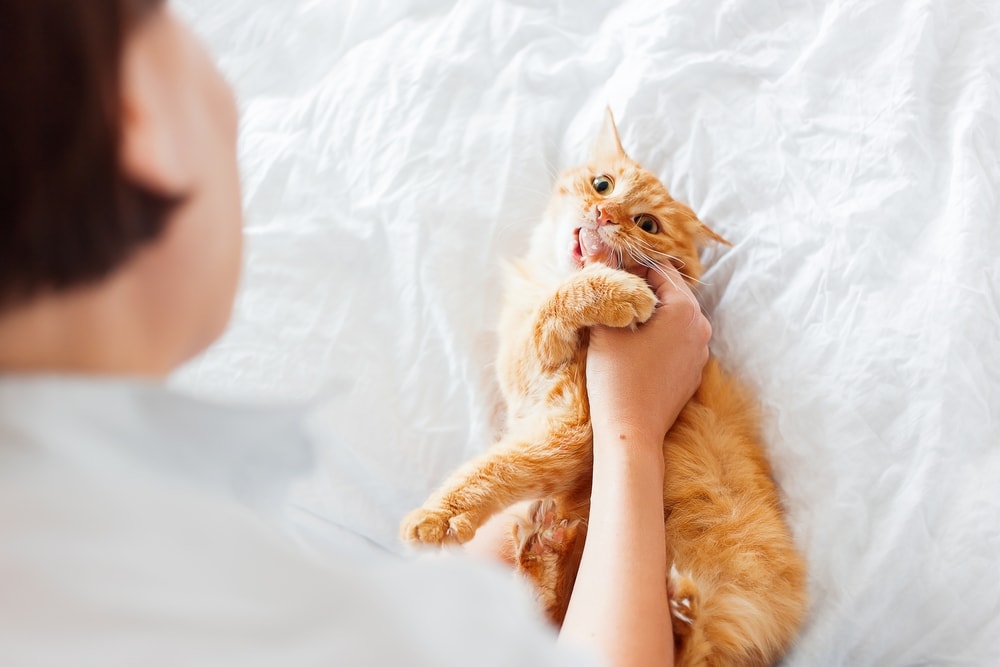
Recognizing Signs of Infection
If you have been bitten by your cat, you’ll need to know what some of the signs of infection are. This will help you to know when to see a doctor so you can get the necessary treatment sooner rather than later.
Some of the common signs of an infected wound include:
- Redness and/or swelling around the affected area
- Discharge from the wound
- Worsening pain from the wound area
- Hot skin around the wound
- Fever
- Reduced movement
It is crucial that you make a point of getting medical treatment right away if you notice any of these signs. Your doctor will likely prescribe a course of antibiotics to treat the infection. This should clear it up nicely. Just make sure that you take all of the medication so that the infection does not return later.
How to Prevent Cat Bites
If you have a cat that is prone to biting, you’ll want to know how to keep their teeth off of you. There are actually a number of methods that you can use to do this.
1. Train Your Kitty
It is important that you do everything you can to train your kitty not to bite. This includes offering positive reinforcement when you are able to handle them without getting bitten.
In this case, you’ll want to give your cat verbal praise and maybe a tasty treat. The sooner you start training your cat, the easier it will be.
2. Give Them a Toy
When your cat starts getting nippy with you, it is a good idea to give them a fun toy to play with. This should be enough to turn their attention away from your fingers. You definitely want to encourage your cat to chew on its toys instead of your fingers or any other part of your body.
3. Do Not Get Physical With Them
You never want to get physical when trying to get your cat to stop biting. This means not hitting or smacking them at all. This could actually make the problem a whole lot worse.
Conclusion
- Cats often bite out of a natural instinct to establish dominance.
- Your cat might also be biting you because it was improperly socialized at a young age.
- If you try to manhandle your cat while it is stressed or aggravated, you might get bitten.
- If you get a bite by your cat, you should immediately clean the wound with soap and water.
- Rub just a little bit of antibacterial ointment on the bite wound.
- Cover up the wound with a clean and dry bandage.
- Make sure that you change the bandage as needed, making sure to keep the wound dry and clean.
- If you notice any signs of infection around the wound, you should seek medical attention right away.
- One of the best ways to get your cat to stop biting you is to use positive reinforcement.
- Offer your cat a fun toy to play with when it starts trying to bite your fingers.



